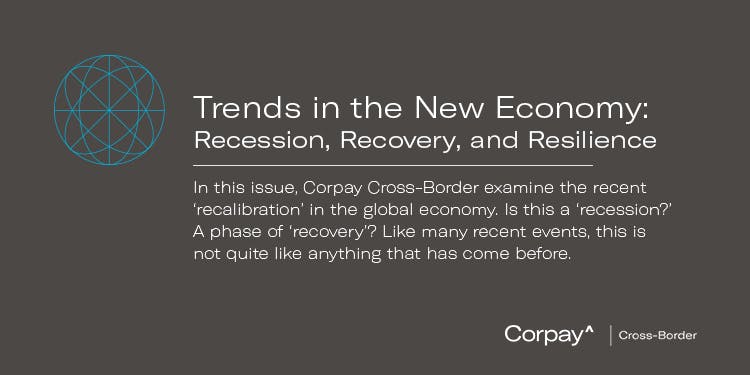Trends in the New Economy: Recession, Recovery, and Resilience

Click here to read the full issue.
Publisher's Letter: Mark Frey
Central Bankers and Ministers of Finance around the world responded to the financial shock of the global pandemic by introducing incredibly easy monetary policy and even more accommodative fiscal measures. While this undeniably muted some of the acute economic pain experienced by households and commercial enterprises during the height of the pandemic, the unintended side effect of these policy decisions has resulted in a generational spike in inflation, which has roiled markets and caused disruption not experienced since the last century.
The conflict in Ukraine has led to concern over food and energy shortages, while supply chains that have been snarled since the onset of the pandemic are recovering but not yet fully meeting demand. This exacerbates price pressures across the global economy. Despite the slowdown in trade of goods and services, labour market conditions remain almost inexplicably tight and unemployment remains near historic lows in much of the developed world.
Is the world economy experiencing a recession? In some senses, yes.
But as with so many events in the current climate, the conventional wisdom of what defines a recession might be unequal to what we’re experiencing today. Consensus indicators are in many ways out of sync, making the current economic downturn like few others that have preceded it.
The cost of living is rising; supply chains are still burdened; employment is in some sectors showing signs of weakness. Not all countries are experiencing the downturn for the same reasons, or in the same way—or even at the same time. But businesses and individuals around the world are feeling the effects. What the entire world is uniformly experiencing is a material increase in market volatility and uncertainty.
Like some other ‘trends’ in our globalised economy, though, this might be a moment-in-time reading.
In our second issue of Trends in the New Economy, we tapped our thought leaders around the world to help us parse what is happening.
They share insight on how businesses might navigate these choppy waters and weather the storms, developing innovative solutions, maintaining flexibility and, we hope, emerging stronger and more resilient.
We’re also sharing some of our own planning, and investments we’re making in our products and services to support our clients through this downturn and in the future.
Click here to read the full issue.